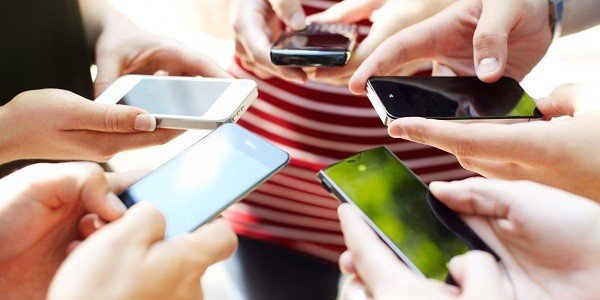Is there life without a smartphone

Researchers from one of the American universities tried to find out what emotions a person feels when parting with his mobile phone and whether these emotions affect concentration and attention during the performance of certain tasks.
As the results of the experiment also showed, today people are so used to having a mobile phone at hand that they feel excitement and discomfort when they are left without it.
Mobile phones have become an indispensable part of our lives and one of the most popular means of communication. However, they are addictive to such an extent that a person becomes nervous if he suddenly hears a phone ring but cannot answer it.
The main goal of the study is to investigate the impact of not having a mobile phone nearby on the performance of cognitive tasks.
Mobile technologies have become such an important part of ourselves that we have come to identify them with our own selves. “They, like the umbilical cord, connect our bodies to the public digital infrastructure” – stated the authors of one of the scientific theories.
According to statistics, young people aged 18 to 24 send an average of 109.5 text messages a day, or approximately 3,200 messages a month, and check their mobile phone 60 times a day.
Many smartphone owners do not part with them even at night, as they use them as an alarm clock. This type of cell phone addiction gives a person the feeling that he is constantly connected to the rest of the world and thus he does not feel alone.
The mobile phone today is not only a means of communication, but also a source of information. A person is simply worried about missing something interesting, afraid that others will consider him not modern enough, therefore, figuratively speaking, he checks the feed of his Facebook profile every second.
These fears have even given rise to a new type of mental disorder called nomophobia. This pathological fear, anxiety or discomfort that the phone is not at hand.
One is afraid that one will not be able to know what has happened if I am not able to answer the phone calls.
We have become so fused with modern mobile phones that they have become an inseparable part of ourselves. And the loss of one part of the whole leads to a change in the perception of oneself, uncertainty and anxiety.
The general state of anxiety is stress, in the process of which adrenaline and cortisol are formed.
These hormones increase the frequency of heart contractions, the respiratory rhythm, increase sweating and constrict blood vessels, and the reduction in the volume of blood vessels in combination with an increase in the rhythm of heart contractions leads to an increase in arterial pressure.
However, the condition is temporary and depends on the duration of exposure to the stressor. In this case, it is appropriate to talk about the so-called situational irritant.
Even though the iPhone may stop ringing, the stress factor continues to affect the person until the mobile device is returned to them.
Scientists suggest that the temporary strong stimulus /the mobile phone ringing when the owner does not have access to it/ causes an increase in blood pressure and a feeling of palpitations, but all indicators return to normal when the phone is returned.
In addition, according to scientists, the strong stress factor inevitably affects the results of the performance of intellectual tasks.



